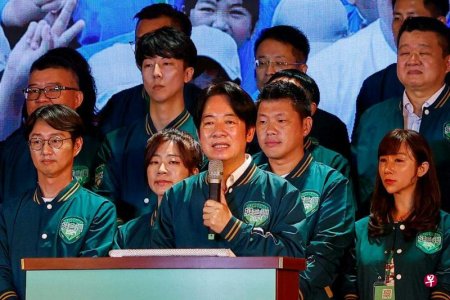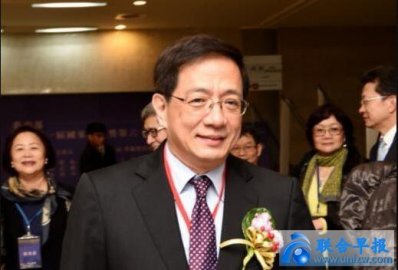Qi Dongtao
In the report of the 19th National Congress of the Communist Party of China, the part of the Communist Party of China showed that the focus of Taiwan's policy on Taiwan has been mainly promoted after the 18th National Congress of the Communist Party of China, and it has been adjusted to the current anti -independence.
This means that the mainland government has adjusted the comprehensive policies of the Ma Ying -jeou government in the political, economic, social and other fields, and adjusted to the Tsai Ing -wen government.EssenceAlthough this adjustment is an inexplicable response to the mainland's steps down in 2016 and the DPP's new situation, it also reflects the long -term predicament of the mainland's Taiwan policy., Society and other folk fields and international areas have mastered the initiative, but in the political field, it has been subject to various factors and is more passive. It cannot continue to promote a series of programs in the political field.
From the history of nearly 70 years since the division of the two sides of the strait, these constraints mainly include three aspects: the Taiwan authorities' rejection policy, the United States to prevent the unification of cross -strait, and the factors within the mainland.
The Taiwanese authorities have rejected a series of proposals made by the mainland since the period of the two Chiang period. From Chiang Kai -shek's Han thieves to the three or not (not contact, not negotiating, not compromising) from Chiang Kai -shek, they have resolutely refused.Unity, but also firmly anti -independence.By 1999, Lee Teng -hui put forward the two -country theory, not only refused to reject all, but also had a tendency to independence in Taiwan.After Chen Shui -bian came to power in 2000, after a short strategic softening on Taiwan's independence, he proposed one country, and promoted a series of radical Taiwan independence policies in the second term, which caused Sino -US joint practice.The election was defeated.
After Ma Ying -jeou took office, he accepted the 1992 Consensus and a Chinese principle. Cross -strait relations entered the best period of history. The significant improvement of cross -strait relations became his greatest achievement. It was a key factor in 2012 that he could get re -election.At the time of the 18th National Congress of the Communist Party of China, Ma Ying -jeou was the first year. The situation on the two sides of the strait was very conducive to the promotion of the mainland. This is also the main reason why the report of the 18th National Congress of the Communist Party of China proposed a series of clear and specific proposal.However, Ma Ying -jeou directly took public opinion as a shield, and did not actively respond to the proposal proposed by the mainland's political and military consultations, which made the mainland's political promotion plan in politics, and in the best period of cross -strait relations, it also fell into trouble.
After Cai Yingwen came to power in 2016, because he refused to accept the 1992 consensus and a Chinese principle, and promoted the flexible Taiwan independence of cultural Taiwan independence in Taiwan, he quickly entered the cold confrontation between the two sides.A series of political negotiation plans proposed in the report of the 18th National Congress of the Communist Party of China have been even more impossible to advance. This is the main reason why the report of the 19th National Congress of the Communist Party of China changed from promoting unification to anti -independence.The mainland has changed from promotion to anti -independence, and once again reflects the long -term policy of Taiwan authorities or rejection of Taiwan authorities, which is the main reason for the mainland to have been passive in the field of political negotiation.
The ability and confidence of the Taiwan authorities to refuse to uniformity are largely based on the support of the United States. Therefore, the United States is another important factor in making mainland passive passive political consultations in Taiwan.Although the United States publicly stated that it does not support Taiwan's independence, because it will make itself passively involved in the Taiwan Strait War, but they do not want to see the unity of the two sides of the strait according to the ideas of one country, two systems on the mainland.From a historical point of view, the Korean War in 1950 and the direct military support for the Taiwan authorities in the past ten years have made the mainland unable to unify Taiwan.After the establishment of diplomatic relations between China and the United States in 1979, the United States formulated the "Taiwan Relations Law" to ensure that Taiwan can buy weapons from the United States to fight the possible military offensive in the mainland.
When cross -strait relations are tense, the United States has repeatedly dispatched aircraft carriers to the waters near Taiwan to show their determination to help Taiwan resist the military operations of the mainland.Not only in terms of military affairs, the attitude of the US government to major political parties in Taiwan can affect the achievements of these political parties in the election.Recently, the U.S. Congress has re -visited the high -level visit to the United States and Taiwan through the "Taiwan Travel Law".It can even be said that the reason why the Taiwan authorities dare to persist in rejection is largely because the United States welcomes and supports Taiwan's rejection.
In addition to the two external factors of the Taiwan authorities and the United States, the internal factors of the mainland have also been passive for Taiwan's policy.The ten -year Cultural Revolution mainland takes class struggles as the outline. Internal turbulence is more than concentrated on solving the Taiwan problem.After the Cultural Revolution, the chaos began to reform and open up. Economic development became the most urgent task of the mainland from top to bottom. The role of Taiwan has become a politically needed to be unified to the economic assistant to help the mainland development and attaches great importance to economic development.Relatively reduced the urgency of political solution to Taiwan.
What's more important is that the mainland has been far behind the level of economic and social development in Taiwan, which greatly reduces the attraction of the mainland to Taiwan and cannot provide equal material and psychological foundation for political unification.In the past, some Taiwanese joked the relationship between the mainland and Taiwan as the poor boy pursuing the rich girl mdash; mdash; how can a rich woman look at the poor boy.
Because of the restrictions on the above factors, although the above factors are relatively passive at the political level, they are becoming more and more proactive in terms of economy, society, and international.Since the reform and opening up, the mainland has actively attracted Taiwanese capital, making Taiwan capital become an important force for the early reform and opening up to enter the mainland, and help the mainland's economy take off.Even during the period of Lee Teng -hui and Chen Shui -bian, although they tried their best to limit Taiwan's capital to the mainland, Taiwan's investment and exports of the mainland continued to grow rapidly.During the Ma Ying -jeou period, cross -strait was through a series of economic and trade agreements to promote cross -strait economic, social, cultural, education and other fields from the official level and system.
Political fields fall into passive
Although Tsai Ing -wen came to power, although the official relationship between the two sides of the Taiwan Strait was far backward, Taiwan's investment and exports of the mainland still mainly followed the economic laws, and it was basically not affected by political relations.From a social perspective, more and more Taiwanese people go to the mainland to start business, employment, school, tourism, and life. Governments at all levels in the mainland cooperate with relevant parties in Taiwan to meet various social groups, exhibitions, projects, parks, and so on.EssenceNot only did the mainland not restrict the people's exchanges in the fields of economy and society because Cai Yingwen came to power, but instead further improved policies to attract more compatriots to the mainland.Recently, it has launched 31 measures to be launched in one breath to strive to promote unification in the economic and social field.
In addition to actively attract Taiwan -funded Taiwan compatriots in the domestic economy and society and make great progress. In the international mainland, it also has the initiative.During the Ma Ying -jeou period, the diplomatic escape was carried out and gave Taiwan a suitable international participation opportunity.Now that we can continue to capture Taiwan's diplomatic relations and block Taiwan's international participation, it is increasingly reflecting the characteristics of the international field of Taiwan's work exercises in Taiwan.
The mainland has mastered the initiative in the economic and social fields of Taiwan relations, and is in sharp contrast to the passive formation in the political field.This also shows that the integrated development of the two sides in the fields of economy and society is helpful to politics, but it is also limited.For example, the author's recent research has found that among the various support groups of the DPP, the evaluation of the economic impact of young people in Taiwan on cross -strait exchanges is relatively positive, but at the same time their Taiwan's main consciousness is the strongest.Similar to the two sides of the young people in Taiwan, the Taiwan authorities have always wanted to enjoy the benefits of cross -strait economic and social integration and development, but also to maintain a state of politics from the mainland, which has caused the passive situation of mainland politics.
The report of the 19th National Congress of the Communist Party of China announced that the mainland has entered the new era. In this new era, the three major factors that restrict the relationship between mainland China have also changed.In terms of internal factors of the mainland, if the speed and model of economic development can maintain a stable and good trend, it will not only provide more and more favorable material conditions for politics, but also greatly improve the leaders of mainland leaders to break through the passive situation of promoting the passive situation.Determination and confidence.The previous use of the Taiwanese's joke mdash; mdash; the mainland has counterattacked from the poor boy to become Gao Fushuai.
In terms of US factors, the comprehensive national strength of the mainland, especially military strength, in the new era, can quickly pull the gap with the United States, and will gradually make the United States lose the militaryThe means to prevent the willingness and abilities of the two sides of the strait.The Taiwanese authorities, which gradually lose the U.S. umbrella, will also lose a military and psychological pillar that supports rejection, which will help the mainland to reverse the passive situation of promoting Taiwan.
As far as the factors of the Taiwan authorities are concerned, Chen Shui -bian has made a lesson that the radical Taiwan independence has failed, which has made the DPP political elites understand that things that are impossible 10 years ago were even more unlikely, and they would not be increasingly not in the future.possible.Therefore, the positions of Tsai Ing -wen and Lai Qingde have rejected the rejection of defense from the pursuit of independence.
With the continuous changes of the two major factors in the mainland and the United States, the position of the Taiwan authorities will change again.Therefore, in the new era, the mainland is likely to get rid of the more passive situation of Taiwan relations in the political field, and achieve a new situation of comprehensive and active promotion in political, economic, social, and international fields.
The author is a researcher at the East Asia Research Institute of Singapore



